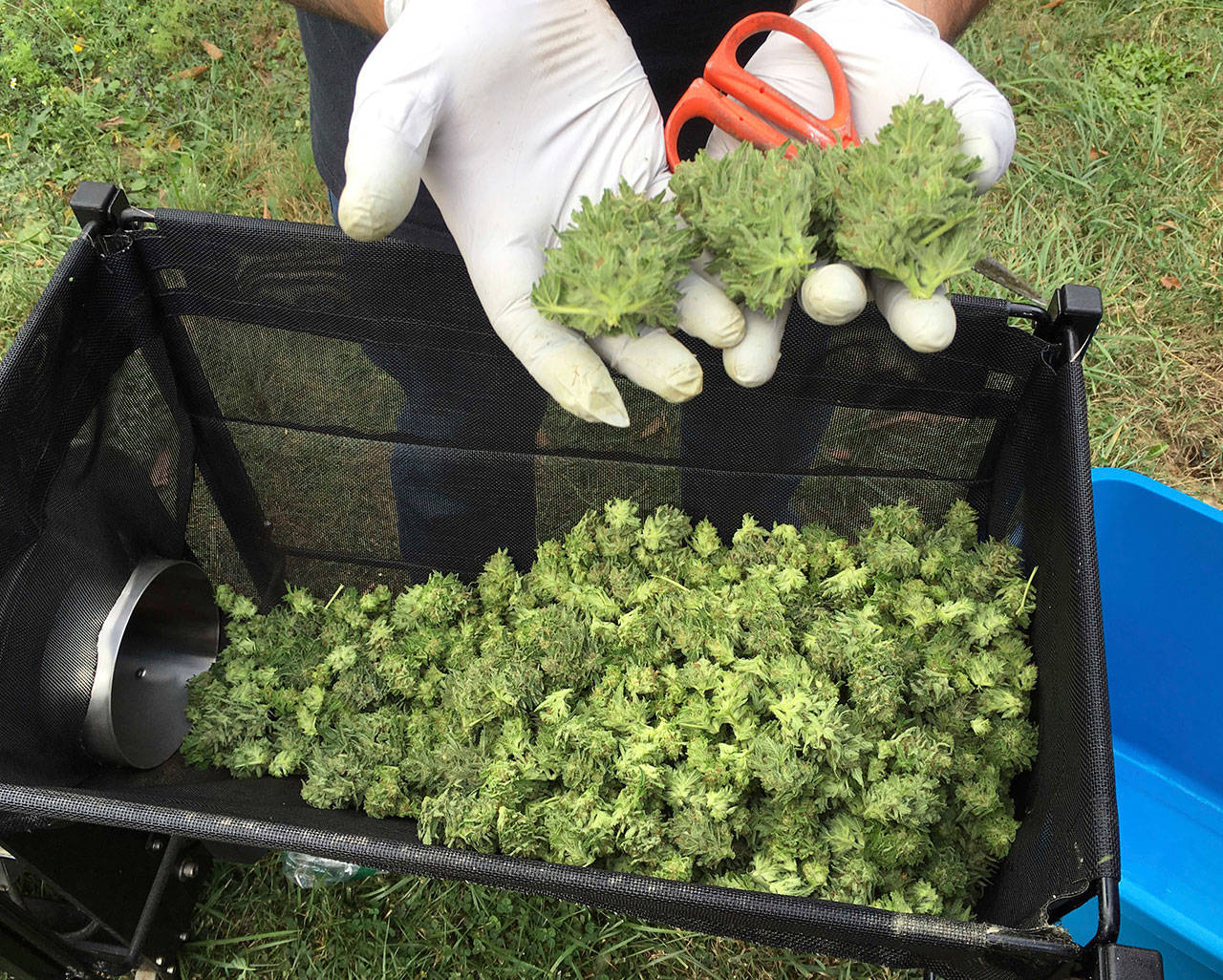By Gillian Flaccus
The Associated Press
PORTLAND, Ore. — A judge has ruled that a racketeering lawsuit brought by a vineyard against a neighbouring marijuana operation can go forward despite attempts to have it dismissed — a ruling that could increase the odds for vineyards and other agricultural businesses that have fought the presence of cannabis farms in their backyards with limited success.
U.S. District Court Judge Anna J. Brown found in the Aug. 27 ruling that there was enough evidence the plaintiff, Momtazi Vineyard, had suffered a financial loss from the neighboring marijuana operation to take the case to trial.
At least two previous racketeering lawsuits filed in Oregon over the smell from marijuana farms have been dismissed, making this ruling notable, said Jesse Mondry, an attorney at the law firm Harris Bricken, which specializes in cannabis-related legal matters. Mondry is not involved in the case.
“It changes the playing field in that the court has shown a pathway to bring racketeering claims against marijuana farms,” he said. “I don’t know that this is going to open the floodgates. At least they know now what they need to do to survive a motion to dismiss.”
The case highlights the tension between vintners and marijuana businesses over land, water, odor and aesthetics in the fertile areas of Oregon and California where both wine grapes and state-legal cannabis flourish. The current case involves a vineyard in the heart of a federally designated viticulture area in Oregon’s Yamhill County, where wine tourism is booming.
It also fits into a pattern of federal racketeering lawsuits targeting marijuana businesses.
One of the first was in Colorado, which legalized marijuana in 2012. By 2016, cannabis companies in Oregon were getting sued, said Matt Goldberg, one of the attorneys representing the defendants.
So far, about half-a-dozen similar lawsuits have been filed in Oregon, he said, and each one has gotten a step closer to meeting the basic legal thresholds required to be heard by the federal courts.
“With each sort of experience and each individual case, they sort of retool their methodology and go at it again and see if they have enough now to survive a motion to dismiss,” Goldberg said.
“Maybe they lose one motion here or one motion there, but they’re in the fight,” he said.
Goldberg said he’s confident his clients will prevail.
The attorney for the plaintiff, Rachel Kosmal McCart, declined to comment.
In this case, Momtazi Vineyard sued in April over allegations that a neighboring cannabis-growing operation caused it to lose money because of the “notoriously pungent stench” of marijuana.
According to the lawsuit, a repeat customer canceled a six-ton order of grapes because they were from a section of the vineyard abutting the cannabis operation and the buyer was worried the grapes could be contaminated with the smell.
“A vineyard’s real property value is heavily dependent upon the marketability of the grapes grown on that vineyard property … and the marketability of the grapes grown on Momtazi property has declined,” court papers said.
Previous lawsuits in Oregon against cannabis grows that alleged the presence of marijuana caused “diminished use or enjoyment” of their property or increased security costs have been tossed, but the judge in the latest case wrote that because the Momtazi complaint cited a specific loss, it could proceed.
“Here, it was that they had actually lost an order of six tons of grapes,” Mondry said.
Defendants Mary, Steven and Richard Wagner and their company, Yamhill Naturals, had argued for the lawsuit’s dismissal, saying that the vineyard could not prove an actual financial loss.
They also alleged that Momtazi’s lawsuit contained outright lies: there was no commercial marijuana operation on the property at all, but just a small grow for personal medical purposes.
A new court filing asking the judge to dismiss the case entirely on those grounds is pending.
McCart did not reply to a follow-up email asking her about those allegations.

